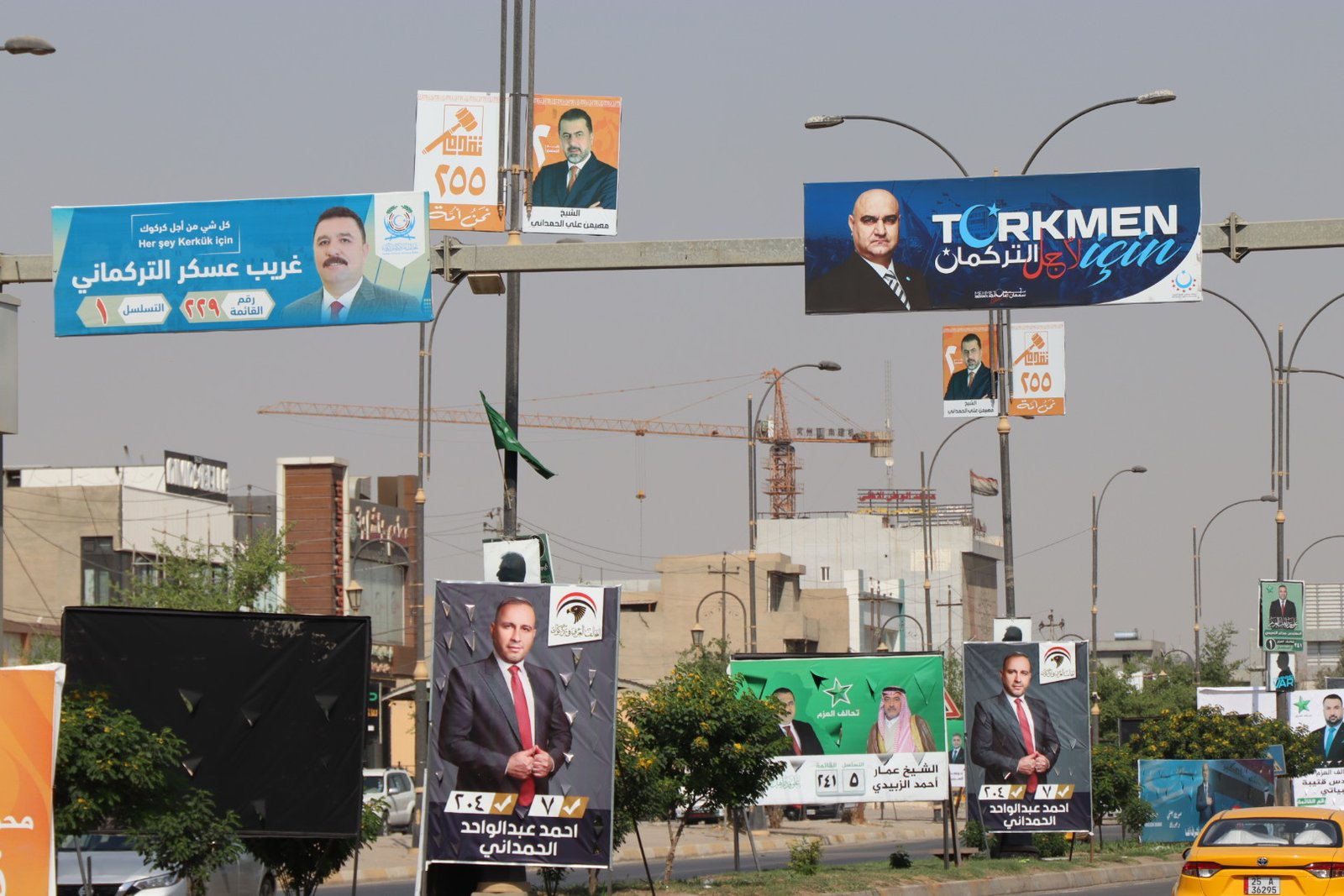Who Are the Main Challengers for Iraq’s Nine Minority Quota Seats in the November 2025 Elections?

Iraq’s upcoming parliamentary elections, slated for November 11, 2025, will allocate nine out of 329 seats to minority communities. Five seats are reserved for Christians, and one seat each for Yazidis, Shabaks, Mandaeans, and Feyli Kurds. This explainer maps the main challengers for each of the nine quota seats.
Context: How the Quota System Works
Iraq allocates quota seats for five Christian MPs and one each for Yazidis, Shabaks, Mandaeans, and Feyli Kurds. These seats are geographically distributed across specific governorates: Christian seats span Baghdad, Nineveh, Erbil, Duhok, and Kirkuk, while the other four minorities are each tied to a single province. However, the voting mechanism has undermined the quota system’s protective intent. Rather than restricting voting to members of the relevant minority, any registered voter anywhere in the country can vote for these seats, regardless of their religious or ethnic affiliation or geographic location.
In the 2021 elections, the pro-Iran Christian Babylon Movement won four of five seats, with the fifth going to a candidate backed by the Kurdistan Communist Party. The other four minority seats, including the Yazidi seat, were captured by PMF-leaning groups.
The Assyrian Democratic Movement, Iraq’s oldest Christian party with a more independent streak, has decided to boycott the elections due to alleged systematic manipulation of minority representation. In earlier elections from 2005 to 2018, Iraqis abroad—where most Christians live—were able to vote, and the Movement won most of its votes from the diaspora. Without overseas voting, its prospects of winning seats are very low. The Movement has accused the current voting method of turning quota seats into tools in the hands of powerful forces backed by armed factions, which seek to expand their influence through electoral fronts nominally affiliated with minorities.
Christian Quota Seats: The Main Battleground
The key battleground is the five Christian quota seats, where competition is fiercest for the Duhok and Erbil seats. The other three seats—in Kirkuk, Nineveh, and Baghdad—are heavily favored to be won by Babylon Movement-backed candidates. Notably, the 2021 elections marked the first Iraqi election in which none of the Christian seats were won by KDP-backed candidates. The KDP had previously mastered the domination of quota seats through earlier experience in Kurdistan Parliamentary elections, where quota seats were often won by pro-KDP candidates.
Erbil Christian Seat
In Erbil, the competition is between the Babylon Movement, the KDP, and the Kurdistan Communist Party, each backing one of three candidates running as independents. In the 2021 parliamentary elections, this seat was won by Farouk Hanna Atto, a candidate backed by the Kurdistan Communist Party.
Interestingly, the Kurdistan Communist Party isn’t fielding candidates in general elections, as its small voting base makes it unlikely to win any seats. Instead, the party now uses the tactic of supporting a quota candidate, since all their members across Iraq can vote for a single candidate, giving them a better chance of winning a proxy seat. The candidate now backed by the Communist Party is Thaera Youssef Aziz, but it remains to be seen whether the party can defend this seat. They won with just 5,084 votes in 2021, while Christian quota seats overall garnered 46,396 votes, suggesting the competition will be fierce. Both the KDP and Babylon Movement will likely employ better strategies to capture this seat.
Babylon’s candidate for Erbil is Hiba Jirgis al-Qass, who ran in Baghdad in 2021 on Babylon’s list and won that seat. The KDP-backed candidate is Kaldo Ramzi Oghanna, Director General of Syriac Culture and Arts in Erbil.
It is unclear whether the KDP will seriously push to win this seat, given that the competition is strong and victory likely requires thousands of votes—something the KDP can ill afford to waste. Under the current electoral system, some seats the KDP is defending may be lost by just a thousand or two votes due to the Sainte-Laguë method (using the 1.7, 3, 5 divisors). Meanwhile, the Babylon Movement has a huge financial apparatus and institutional backing from ruling Shia factions. Since it competes mostly for these five quota seats, it has better resources to plan and win, especially given that the seats can be voted for across all of Iraq.
Duhok Christian Seat
In Duhok, the KDP’s strongest stronghold, the quota seat was won by the Babylon Movement in 2021 with 12,405 votes. The current main competitors are Atheer al-Jalu, who runs on Babylon’s ticket as an independent, and KDP-backed Sami Oshana. There are also Angela Shabo, running as an independent, and Emmanuel Khoshaba, who leads the Assyrian Patriotic Party, but given voting patterns, the competition will likely concentrate between the Babylon and KDP candidates.
However, even then, Babylon appears to have a better chance of winning this seat. In 2021, the KDP-backed candidate won 7,702 votes yet still lost, meaning nearly 8,000 votes were wasted for the KDP. This cost the party a second seat in Duhok, which went to the Kurdistan Islamic Union by a small margin. Evidence suggests the quota votes came from KDP supporters, as most of Oshana’s votes in 2021 came from special voting, which is cast by security forces.
It is unclear whether the KDP will still seriously push to win this seat or abandon the effort altogether. One tactic Babylon might use is to wait for special voting—which takes place before the general elections—to gauge the scale of voting for a candidate, then decide how many votes to allocate for that specific seat from their pool of voters.





